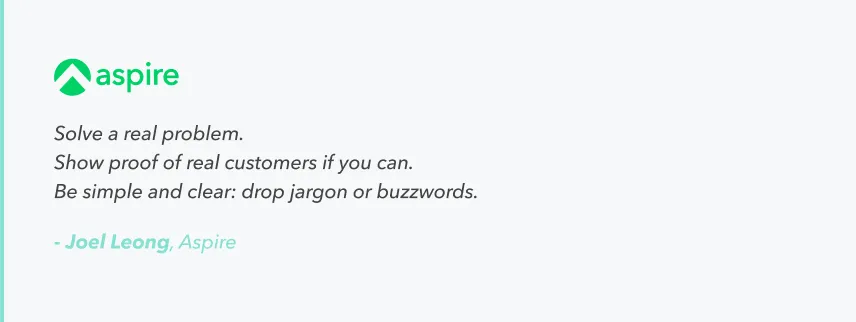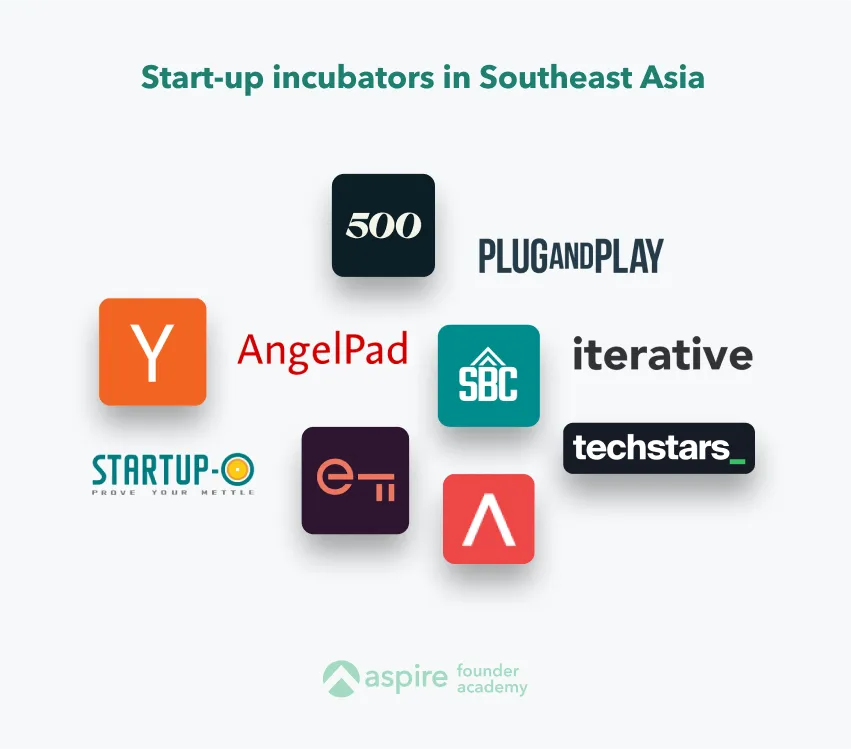Summary
Joining a start-up incubator is the dream of many start-up founders.
These prestigious programmes provide you with a competitive edge and a much-lauded stamp of approval. But getting into a start-up incubator is also notoriously competitive.
This guide shows you what to expect during the application process. Explore the tips and resources to increase your chances of getting in.
How to get into a start-up incubator?
Joining an incubator comprises two phases: The written application and interviews.
After a successful application, you’ll need to answer probing questions about your business plan, product and team under pressure.
1. Written application: To succeed, you need to understand your product completely. Can you articulate what problems your product or service solves and demonstrate you have the right team for it?
2. Interview: It may take several weeks before you hear from your start-up incubator. If you’re successful, you’ll proceed to the interview stage. Expect a tight ten-minute round of intense questioning.
The written application: How to apply to a start-up incubator?
1. Research your shortlisted incubators
Most start-up incubators receive hundreds of applications, so they’ll be picky about who they choose to work with.
But you should also be picky. Make sure the incubator's offer matches your company’s needs. Some key factors you should consider are:
- The length of the incubator programme
- The starting date
- The amount of equity and funds you’ll exchange
- The location
- The incubator’s mentors and alumni
2. Reach out to alumni
Most incubators list their alumni on their websites.
Ask some founders if they’d recommend the programme. If they’re positive, ask them for advice to improve your chances of getting in. Some might even be willing to mock interview you or review your application.
3. Gather a strong team
Investors are more interested in the team than anything else in the early investment stages.
Moreover, you can expect your initial business idea to change as you go through your business incubator applications and while you’re in the programme. You may even change direction completely to find a more feasible business model.
This is why you should prioritise the quality of your team over your business idea. Your business direction may change more easily than your team.
You need people who have experience building things or people with unique insights to solve a problem. You’ll also want to show how you and your co-founders have worked together previously and whether what you did together was successful.
4. Thoroughly understand your business
During the interview stage, expect questions about business strategy, your current (or potential) customers and questions on your vision.
Practice pitching your business. You should be able to explain your start-up’s business model, its solution and any projections for future growth.
Familiarise yourself with your key business metrics. For example, if you’re an app-based business and one of your key metrics is daily active users (DAU), be ready to discuss your current DAU, your week-on-week or month-on-month growth trends and the actions you’re taking to grow it.
5. Keep your application concise
Top start-up incubator programmes like Y Combinator review over 10,000 applications per cycle.
Keep your application short because they won’t read long applications. Besides, conciseness displays your ability to think clearly and logically. Aim to get people to understand your business in a single sentence without jargon or buzzwords.
6. Emphasise business traction if you have it
Whenever possible, you should show proof of real customers. Showing you’re making something people want (and will pay for) is the most tangible proof that you have an existing business idea.
7. It’s okay if you get rejected the first time
Many founders interviewed about getting into Y Combinator got in on their second application. If you don’t get in, keep building, refine your business plan and apply again in future cycles.

The interview: How to prepare for your start-up incubator interview
Know your business
Be prepared to give a short pitch about your business and explain your business’s strategic and operational processes.
If you have numbers and traction that prove your business is working, show it! Your interviewer is looking for evidence of your ability to execute.
Prepare your company one-liner
The goal of a one-liner is to explain your company quickly and clearly. When people get your one-liner, it’s easier to talk about your company.
Tip: Write your one-liner using this template “We are building X (what does your company do) for Y (who do you serve)”.
Rehearse and practice your answers
Remember, you’ll be answering many rapid-fire questions in a short time. Practice your answers repeatedly while keeping your responses concise.
Try introducing pressure elements like getting someone to yell at you while you’re answering questions because these interviews won’t be easy.
Tip: Which questions to prepare for? YC W19 company, Supernova, listed all the questions they prepared for before their interview.
Keep your answer concise
Aim for short, direct answers. Write your responses and see if you can reduce the length while retaining your key points. You may also want to prepare three crucial things to convey about your company during your interview.
Communicate founder synergy
Start-up incubators attach great importance to the quality of your team. If you’ve worked together before, talk about it. You should also mention how you and your co-founders have complementary skill sets or different areas of focus.
For example, a typical responsibility split sees one founder focusing on technical areas while the other heads commercial activities like marketing and business development.
Now you know how to prepare for an interview, let’s find some incubators to apply to.
Where to find a suitable start-up incubator in Southeast Asia?

We’ve compiled a list of top start-up incubators in Southeast Asia. Check their website for updated information on cohort application dates, programme durations, and offers.
- Y Combinator
- Antler
- Entrepreneur First
- AngelPad
- 500 Startups
- Startup Bootcamp
- Plug and Play
- Iterative
- Startup-O
- Techstars
Here’s the complete list with extra details. Here are some more ideas if you want to compile a more extensive list of potential incubators for business.
- Explore NUS Enterprise’s list of start-up incubators in Singapore: Singapore is of the hottest cities to incorporate a start-up. You’ve got over 20 start-up incubators and accelerators covering a diverse range of industries.
- Go through Crunchbase’s list of Southeast Asian incubators: Crunchbase’s list of Southeast Asian incubators includes information on average funding amounts, investment trends and more.
- Search Founder Institute’s list of accelerators, incubators and investors for Singapore-based start-ups: This list has resources relevant to all start-up stages. You’ll find resources on ideation, validation and launching.
Frequently asked questions about incubators
What’s the typical acceptance rate for a start-up incubator?
Top incubator programmes are competitive. For example, Y Combinator receives over 10,000 applications per cycle, with an acceptance rate of 1.5% to 3%.
What’s the difference between a start-up incubator and a start-up accelerator?
You may see these two terms used interchangeably, but they aren’t the same.
Incubators typically look for promising business ideas under development. In contrast, accelerators work with start-ups that already have a product’s first iteration and need help with scaling the product.
Both start-up incubators and accelerators offer mentoring and access to educational or technical support. They may also provide seed funding in exchange for a small percentage of equity.
How much equity do start-up incubators take?
An incubator takes around 5-10% of start-up equity in exchange for a modest investment. Y Combinator invests $125k for 7% of your company, whereas 500 Startups invests $150k for 6% of your company.
What if my application fails?
Many companies don’t succeed the first time, especially when applying for more prestigious incubator programmes.
Keep your head up if they reject you. Continue building and developing your idea. Ideally, demonstrating some form of business traction (having paying customers) is incredibly valuable if you want to apply again in a future intake.










%201.webp)


.webp)